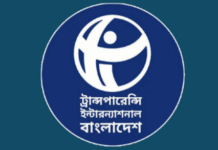There has not been much improvement in the state of nutrition in Bangladesh, according to a recent global report. Bangladesh is not on track towards achieving the World Health Organisation (WHO) goals in addressing stunted growth and low weight of infants, obesity and women’s anaemia.
The Washington-based International Food Policy Research Institute (IFPRI), has published the Global Nutrition Report 2012 on its website. The report has been published on the occasion of the second international nutrition conference to be held on 19-21 November in Rome, Italy. The conference has been organised jointly by the UN Food and Agriculture Organisation (FAO) and WHO.
Prime Minister Sheikh Hasina was scheduled to attend the conference, but agriculture minister Matia Chowdhury is going in her stead.
This is the first global report on nutrition. It states that all countries in the world have nutrition problems. A total of 2 billion to 3 billion people in the world suffer from dome for of malnutrition. Some have stunted growth, some have low weight, some are obese and some suffer from lack of micro-nutrients. Malnutrition is manifest in emaciated children, obese persons with breathing problems, infants dying before their first birthdays and so on.
The report describes the nutrition challenge as the development challenge of the 21st century. It says that improvement of the state of nutrition will be at the centre of the sustainable development agenda.
The report says that by the year 2025, the number of children with stunted growth would have to be brought down by 40%, women with anaemia by 50%, infants with low birth rate 30% and emaciated infants by 5%. Children who are fed only breast milk for the first six months must be increased by 50%. The number of obese children must be lessened.
The report has used stunted growth, anaemia, underweight and obesity as indicators. Bangladesh has not met a single goal of these indicators. Among a total of 179 countries, there are 30 other countries like Bangladesh in this regard.
The report states that stunted growth in Bangladesh is going down by 2.7%, but the 2025 target is an annual reduction by 3.3%. The report does however say that Bangladesh has made progress in this regard, even though it hasn’t reached the goal. Bangladesh is doing over twice as good as India in this regard.
A large number of women of the reproductive age bracket in Bangladesh suffer from anaemia. The rate of anaemia has gone by annually by 0.6%. The goal for 2025 is a reduction by 5.2%.
A total of 15.7% of children under five years of age are underweight. It does not mention the rate of reduction in this matter, but says that Bangladesh is not in track in this case either. Obese children under the age of five are also increasing and Bangladesh is not on the right track here either.
Nutritionist Professor AQK Talukdar yesterday told Prothom Alo, “The state of nutrition in Bangladesh is not at all good and we have been saying so for a long time now. There is no effective nutrition programme in place at a field level. There is no leadership. It is like having a railway station but no railway tracks. There are hospitals, but no room for nutrition, no arrangements to provide service to the people.” He felt that the nutrition programme in the country amounts to nil.
A UNICEF official, on condition of anonymity, has said that Bangladesh needs to improve in many sectors. But 2025 is still a long way off so it is still not the time to predict whether the goal will be met or not.
This 118-page report says that malnutrition is not only a matter of concern for low-income countries. This problem exists in many high-income countries too. In the US, the number of obese people has doubled since 1970. A total of 69% of the adults and 32% of the children there are obese. The UK has the same problem. There, 67% of the men are obese and 57% of the women.
The report goes on to say that developed countries and donor agencies do not always meet their commitments for funds to eliminate malnutrition. Donors, government and international agencies must be accountable in this regard and persons who work well in the field of nutrition must be organised and provided with assistance to expand their work.
Tahmid Ahmed, head of the nutrition and food security department of ICDDRB (International Centre for Diarrhoeal Disease Research Bangladesh), has said that people’s livelihood and proper income, awareness regarding child nutrition, and clean water and sanitation systems, must be ensured.
Source: Prothom Alo









